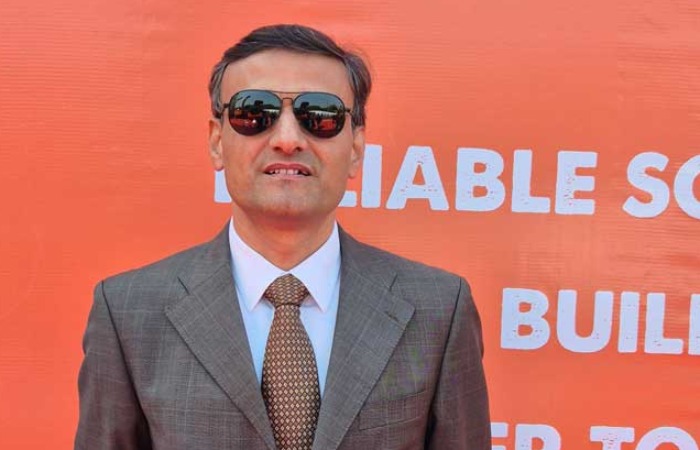
Mini excavators are gaining traction for niche applications
Can you share the current trends you are witnessing in the market, and how is Tata Hitachi adapting to them?
One of the key trends we’re seeing is the shift in fuel sources. Traditionally, the industry has always relied on diesel, but now we’re gradually moving towards alternate fuels. This includes the introduction of electric excavators and battery-operated machines, and even discussions around hydrogen fuel in the near future. This is a significant change in the market.
Another trend is the increasing use of electronics in our machines. Going forward, I expect that larger clients will show greater interest in adopting these technologies. Additionally, stricter emissions regulations are coming into play, and we’re seeing more and more wheeled products on the market that comply with these new standards. Alongside this, there’s a rise in the demand for mini excavators.
That’s an interesting point about mini excavators. Could you elaborate more on why they are gaining popularity?
Mini excavators are becoming increasingly popular, especially as labour costs rise. As economies grow, manual labour costs go up, and manual labour also has limitations in terms of efficiency. So, when labour costs increase and efficiency becomes a concern, mini excavators step in as a viable solution.
You’re starting to see more mini excavators because they are more efficient, especially for digging operations, compared to traditional machines like backhoe loaders. They’re particularly useful in confined spaces, where larger machines cannot operate effectively. We’re witnessing a shift in the mindset of customers, who are beginning to realise that not every task can be done with a backhoe loader. Mini excavators are proving to be a better choice for specific applications.
How do you see the market in India evolving?
I believe the market in India will continue to grow in the coming years. We’ve already seen the mini excavator market mainly concentrated in states like Karnataka, Kerala, and Tamil Nadu. However, with initiatives like the Jal Jeevan Mission, there’s been an increase in the use of excavators across the country.
Mini excavators, in particular, are gaining traction for niche applications, and there’s a growing understanding that they are a viable and necessary alternative to larger, more versatile machines like backhoe loaders. As more people recognise their value in specific tasks, the market for mini excavators will continue to expand.
With the market evolving, how has the current year been for your business, especially with the challenges posed by elections and extended rainy seasons?
The elections weren’t as big of a concern for us as many had predicted continuity in the government. The real challenge this year has been the rains, which followed the election period. The rains have had a bigger impact on the industry than the elections. However, I’m optimistic. We’re seeing a recovery, and I believe the last quarter of the year will see a pickup in business. The numbers so far are showing an upward trend compared to last year.
Looking ahead, what is Tata Hitachi’s market strategy?
Our focus going forward will remain on our customers at the ground level. That’s really where we can make a difference. It’s a simple approach, but it’s effective. We stay committed to our passion for providing the best products and services to our customers.
Are there any plans for expansion or further investments?
We are indeed looking at expansion, but we’ll make any official announcements at the right time. For now, we are focused on introducing new products, which you can see here at the exhibition. As for expansions, we’ll share more details when the time is right.


 +91-22-24193000
+91-22-24193000 Subscriber@ASAPPinfoGlobal.com
Subscriber@ASAPPinfoGlobal.com